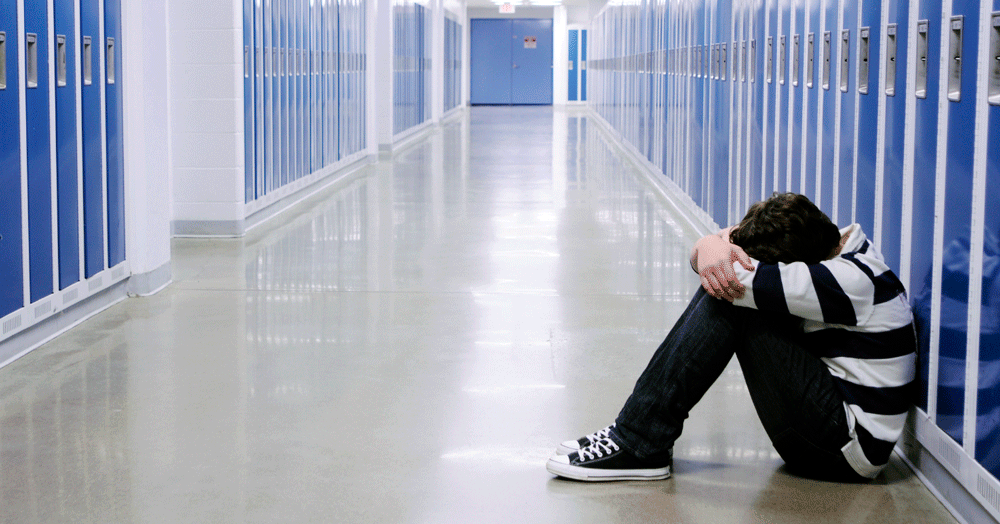The beginning of the school year is upon us and it can often be an exciting prospect for many parents, teachers, children and teenagers. It can also be an anxious time of year as the school year brings with it academic challenges and social pressures. Ireland may have become a drastically more accepting place for the LGBT+ community in recent years, however, attitudes towards members of the LGBT+ community do not always reflect this change. This is often a concern for LGBT+ children and teenagers, their parents, LGBT+ teachers, and same-sex parents of children and teenagers. One of these concerns, which is widespread in Ireland’s schools, is bullying.
What is homophobic and transphobic bullying?
Homophobic and transphobic bullying are forms of bullying that typically victimizes lesbian, gay, bisexual, transgender, non-binary, queer and other individuals with different gender and sexual identities. The National Anti-Bullying Centre (ABC) describes it as any intentional, targeted and repeated abusive behaviour of an individual; because of their actual or perceived sexuality, and/or their gender identity.
Victims and perpetrators of homophobic bullying can be LGBT+ individuals, and also individuals who are not LGBT+. This means that individuals do not have to be LGBT+ to experience the abuse. Non-LGBT+ children of same-sex parents, non-LGBT+ friends and family, and individuals with political views that promote LGBT+ advocacy and inclusion do also experience it.
Homophobic bullying often results in low self-esteem, mental health problems, not wanting to go to school, poor academic performance, low mood, and an increased likelihood of self-harm. This can also contribute to known LGBT+ related issues such as fear of expressing identity, reluctance to seek mental health support due to stigma, and most worryingly, suicide ideation.
Signs include verbal abuse (e.g. use of homophobic slurs), physical abuse (e.g. hitting, pushing, kicking and threatening behaviour), exclusion (e.g. segregated play), cyberbullying (e.g. trolling, abusive messages, profile impersonation), and transphobia (e.g. dislike or fear of transgender individuals).
Homophobic and transphobic bullying can be considered as different forms of bullying by some, however, both are similar in relation to how the bullying is usually carried out, and how the victim is affected as a result of it.
What can you do to stop it?
Bullying does not stop on its own. Something has to be done to stop it from happening. School-based LGBT+ equality campaigns such as “Rainbow Week” are effective for raising awareness and promoting equality in schools. But they are not sufficient in tackling targeted homophobic and transphobic bullying incidents alone.
Under Irish law, all schools must adopt an accessible, comprehensive, and inclusive anti-bullying policy. The Department of Education and Skills states that anti-bullying policies are put in place “to give direction and guidance to school authorities and school personnel in preventing and tackling school-based bullying behaviour amongst its pupils and in dealing with any negative impact within school of bullying behaviour that occurs elsewhere.”
These policies must also include homophobic and transphobic bullying into their frameworks and act accordingly. Schools with inclusive and comprehensive anti-bullying policies are able to tackle the issue better than those that do not. Schools are obliged to take action once the bullying situation becomes known to them.
If a child or teenager experiences homophobic or transphobic abuse online, it is recommended that screenshots of the abusive messages or content are taken as evidence. Use the report and block functions of the social networking site (e.g. Facebook) or online game (e.g. Fortnite). Explain the situation to a parent/ guardian, teacher, or school counsellor who are in better positions to intervene. If the school or social networking site do not swiftly respond to the bullying, parents can contact the Ombudsman for Children or their local Garda station.
As bullying incidences can be traumatic for children and teenagers (and their parents), it is recommended to avail of the range of support services in place for their safety. There are many services in place, some listed below that are often consulted by the ABC, that offer a range of emotional, social and other kinds of support.
Below a list of resources and services available if you or someone you know is experiencing bullying:
BeLonG To: http://www.belongto.org/
TENI: https://www.teni.ie/
Tackle Bullying: http://tacklebullying.ie/
Webwise: https://www.webwise.ie/
Report Cyberbullying: https://cyberbullying.org/report
Childline: https://www.childline.ie/
Department of Education and Skills: https://www.education.ie/en/Schools-Colleges/Information/Bullying/Anti-Bullying-Procedures-in-Schools.html
Ombudsman for Children: https://www.oco.ie/
© 2019 GCN (Gay Community News). All rights reserved.
Support GCN
GCN is a free, vital resource for Ireland’s LGBTQ+ community since 1988.
GCN is a trading name of National LGBT Federation CLG, a registered charity - Charity Number: 20034580.
GCN relies on the generous support of the community and allies to sustain the crucial work that we do. Producing GCN is costly, and, in an industry which has been hugely impacted by rising costs, we need your support to help sustain and grow this vital resource.
Supporting GCN for as little as €1.99 per month will help us continue our work as Ireland’s free, independent LGBTQ+ media.
